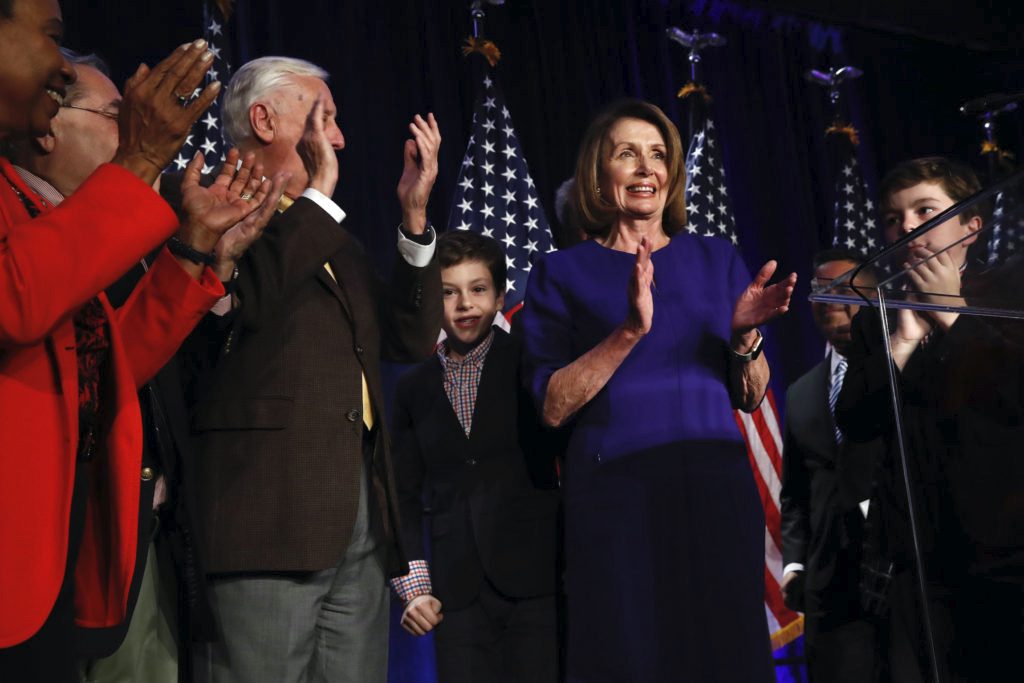Table Of Content
- Many O.C. residents deny Trump election results, potentially swaying key races, poll finds
- How today’s antiwar protests stack up against major student movements in history
- After opposing Emmer bid for speaker, Trump says his "strong suggestion" is to support Johnson
- What happens if a candidate doesn't get the majority of votes?
- Johnson wins nomination
- Johnson says he "feels very good" about speaker vote
- The stalled effort to elect a House speaker
John Swinney is a name that has kept coming up since Humza Yousaf announced his resignation as SNP leader and Scottish first minister today. After Mr Ahmad's death two years later, he carried on the role and worked as an assistant for a number of MSPs, including Nicola Sturgeon and the then-first minister Alex Salmond, solidifying his place in the party. As a result, his former Green allies teamed up with the Conservatives, Labour and Liberal Democrats to get behind two no-confidence motions, one in himself as leader of Scotland and another regarding the entire Scottish government. Scotland's First Minister Humza Yousaf has resigned – days after he cut the SNP's powersharing deal with the Scottish Greens. Those eight years actually made Hastert the longest-serving Republican speaker in history. But any luster left after 2006 was lost when he went to prison for bank fraud charges stemming from hush money payments he had made to a former student he admitted to having sexually abused decades earlier.
Many O.C. residents deny Trump election results, potentially swaying key races, poll finds
Rep. Andy Biggs, R-Ariz., challenged McCarthy for the powerful leadership role and earned 10 votes on the first ballot Tuesday. By Wednesday, Biggs appeared to be out of the running for the gavel as did Ohio Rep. Jim Jordan, who received 20 votes on the third ballot. Florida GOP Rep. Byron Donalds became the McCarthy alternative, earning 20 votes on the fourth, fifth and sixth ballots.
How today’s antiwar protests stack up against major student movements in history
Every lawmaker voting "present" lowers the overall tally needed to reach a majority. In past years, President Joe Biden, former President Donald Trump and even a senator, Republican Rand Paul of Kentucky, have received votes for House speaker. The chamber cannot organize until it has a speaker since that person effectively serves as the House's presiding officer and the institution's administrative head. After McCarthy finally won election in the wee hours, the House finally adjourned and let everyone go home. House Majority Leader Steve Scalise and Jordan ran against each other within the Republican conference to be the GOP speaker nominee. Scalise was the first Republican selected by his party, but when he could not secure the backing of enough of Jordan's supporters, he dropped his bid.
After opposing Emmer bid for speaker, Trump says his "strong suggestion" is to support Johnson
She has written for outlets including the Washington Examiner, Daily Signal and Alexandria Times. Melissa covers U.S. politics, with a focus on the Supreme Court and federal courts. The candidates were Reps. Byron Donalds of Florida, Chuck Fleischmann of Tennessee, Mark Green of Tennessee, Mike Johnson of Louisiana and Roger Williams of Texas. Majority Leader Steve Scalise threw his support behind Johnson late Tuesday, calling him a "dear friend" in a statement.
Republicans drop Jim Jordan's US House speaker bid after third failed vote - Reuters
Republicans drop Jim Jordan's US House speaker bid after third failed vote.
Posted: Fri, 20 Oct 2023 07:00:00 GMT [source]
The political future of the 57-year-old will once again be at stake as GOP lawmakers decide whether he should be elected as House speaker. The House has been in a state of uncertainty and chaos since Oct. 3, when rebels forced a vote to oust Mr. McCarthy as speaker. Eight Republicans backed that move along with Democrats, who remained united behind their own leader, Representative Hakeem Jeffries of New York. Republicans had cast aside two previous winners of their closed-door nominating process — Representative Steve Scalise of Louisiana and Representative Jim Jordan of Ohio — before settling on Mr. Emmer. After a mob of Mr. Trump’s supporters, believing the election was rigged, stormed the Capitol on Jan. 6 and injured about 150 police officers, Mr. Johnson condemned the violence. But he defended the actions of congressional Republicans in objecting to Mr. Biden’s victory.

Trump seemed to acknowledge his role in killing Emmer's quest for the gavel, as he shared on his social media platform an article from Politico about how the former president "torpedoed" the bid. Emmer began to lose support from conservative lawmakers shortly after Trump's missive, and he bowed out of the contest shortly after. Former President Donald Trump posted on Truth Social, his social media site, early Wednesday to urge House Republicans to back Johnson for speaker, less than a day after he effectively derailed Majority Whip Tom Emmer's own bid for the gavel.
Johnson wins nomination
GOP Rep. Stephanie Bice of Oklahoma is considering a run for conference vice chair – the leadership role previously occupied by now-Speaker Mike Johnson, according to her spokesperson. Two GOP lawmakers, Reps. Dave Joyce, Ohio, and Mike Kelly, Pa., have each introduced their own resolutions empowering McHenry as interim speaker for a limited period to allow Congress to address time-sensitive issues, such as the looming shutdown. Rep. Mike Flood, R-Neb., in an effort to ensure the next nominee has the support to become speaker, has been circulating a unity pledge for members to sign and promise they will support the eventual nominee, regardless of who it is. Last Friday, after House Republicans voted to drop Jordan in a closed-door meeting, some members immediately declared their own candidacy, such as Hern and Scott. "The important thing functionally is nothing else happens in the House until they have a speaker," Glassman said, adding that the House won't be able to adopt rules, assign committees or consider legislation until the speaker is chosen. On three occasions prior to the Civil War, a speaker was not elected on the first ballot.
McCarthy previously made a run for speaker in 2015 when then House Speaker John Boehner, R-Ohio, resigned after an internal party battle with the more right-wing members of the chamber, including the Freedom Caucus. Despite being the favorite as majority leader, McCarthy was forced to drop out of the running when it became clear he did not have the backing of the Freedom Caucus. Once a speaker candidate wins a majority of the vote, the clerk will announce the results of the election. Historically, the magical number has been 218 out of the 435 members of the House.

The stalled effort to elect a House speaker
While the California Republican had earlier conceded that the motion could be introduced with the support of five members, the threshold is now back down to one. Gingrich managed to restore many of the powers of the speakership but clashed repeatedly with Clinton and even with Republican leaders in the Senate. In 1997, in his second Congress as speaker, he barely survived a largely covert challenge from within his own leadership team. And just shy of his fourth anniversary in the job, he was voted out by the full House Republican conference in December 1998.
From early in its existence, the speaker's primary function had been to keep order and enforce rules. Following Clay's retirement in 1825, the power of the speakership once again began to decline, despite speakership elections becoming increasingly bitter. As the Civil War approached, several sectional factions nominated their own candidates, often making it difficult for any candidate to attain a majority. In 1855 and again in 1859, for example, the contest for speaker lasted for two months before the House achieved a result. For example, from 1839 to 1863 there were eleven speakers, only one of whom served for more than one term.
Gingrich's hold on the leadership was weakened significantly by that and several other controversies, and he faced a caucus revolt in 1997. After the Republicans lost House seats in 1998 (although retaining a majority) he did not stand for a third term as speaker. His successor, Dennis Hastert, had been chosen as a compromise candidate since the other Republicans in the leadership were more controversial. Hastert played a much less prominent role than other contemporary speakers, being overshadowed by House Majority Leader Tom DeLay and President George W. Bush.
In the weeks after an election, the Republican conference and the Democratic caucus hold an informal vote among their members to decide whom they want to nominate to lead their party in January. McCarthy won the majority of the Republican vote in a closed-door November meeting. Weeks later, Democrats unanimously chose Rep. Hakeem Jeffries (D-N.Y.) to become their leader as the party transitions into the minority. Some on the right opposed to Mr. Emmer cited his vote in favor of codifying federal protections for same-sex couples. Others railed against Mr. Emmer’s vote in favor of a stopgap spending bill put forward by Mr. McCarthy, the speaker at the time, to avert a government shutdown.
The speaker of the House is the only political position in the House elected by all its members. Here's how the election works and what could happen if McCarthy does not reach the vote threshold needed for the speakership. One of the most influential speakers in history was Democrat Sam Rayburn.[48] Rayburn had the most cumulative time as speaker in history, holding office from 1940 to 1947, 1949 to 1953, and 1955 to 1961. He helped shape many bills, working quietly in the background with House committees. He also helped ensure the passage of several domestic measures and foreign assistance programs advocated by Presidents Franklin D. Roosevelt and Harry Truman. Toward the end of the 19th century, the office of speaker began to develop into a very powerful one.
On Nov. 8, 2020, Mr. Johnson was onstage at a northwest Louisiana church speaking about Christianity in America when Mr. Trump called. Mr. Johnson had been in touch with the president’s team on his myriad legal challenges seeking to overturn the results, “to restore the integrity of our election process,” according to a Facebook post by Mr. Johnson recounting the exchange. No credible evidence has ever emerged to support the conspiracy theories about Dominion and another voting machine firm having helped to ensure Mr. Trump’s defeat. In April, Fox News agreed to pay $787.5 million to settle a defamation suit by Dominion over reports broadcast by Fox that Dominion machines were susceptible to hacking and had flipped votes from Mr. Trump to Mr. Biden. The election on Wednesday of Mr. Johnson, 51, to the post second in line to the presidency has focused new attention on his behind-the-scenes role in trying to overturn the election results on behalf of former President Donald J. Trump. Democrats were scathing in their assessment of Mr. Johnson’s ascent to the speakership.
The comment was a reference to Johnson's work to overturn the results of the 2020 election. "Our commitment to Israel's security is ironclad and Israel has a right to defend itself under the international rules of war against the brutal terror unleashed on its citizens by Hamas," Jeffries said. "From the very beginning of this Congress, House Democrats have been governing for the people," Jeffries said. "We continue to look forward to finding bipartisan common ground whenever and wherever possible."


No comments:
Post a Comment